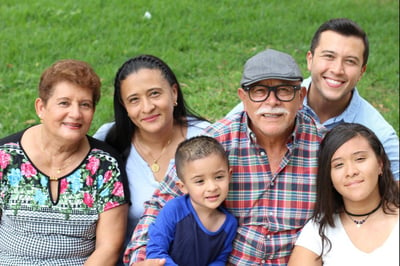Search Results: Treatment + Colorectal Cancer + Stage 4 (6 results)
New Search
Treatment
Treatment study for people with triple negative breast cancer, advanced solid tumors or lymphomas
Study of a New Treatment Called ONM-501 Alone and in Combination with Immunotherapy for Triple Negative Breast Cancer, Advanced Solid Tumors and Lymphomas
Study of a new drug called ONM-501 for people with triple negative breast cancer, advanced solid tumors or lymphomas

Treatment
People with HER2-positive colorectal cancer who have not yet received treatment in the metastatic setting
Comparing a Combination of Drugs for Treatment of HER2-positive Colorectal Cancer as First Line Treatment in the Metastatic Setting
This study is being done to decide if the drug Tukysa (Tucatinib) combined with other cancer drugs works better than the standard of care, which is chemotherapy treatment for people with a specific type of colorectal cancer called HER2 positive colorectal cancer. The study also aims to understand the side effects of the combination of these drugs in treatment. The combination of drugs being used are Tukysa (Tucatinib), Herceptin (Trastuzumab), and mFOLFOX6, which is a combination of Oxaliplatin, Leucovorin, Levoleucovorin, and Fluorouracil.

Treatment
Hispanic and Latino people diagnosed with colorectal cancer
Study of Colorectal Cancer and Genetics in Hispanic and Latino People (ENLACE Study)
The ENLACE study will learn more about colorectal cancer in Hispanic people so that treatment can be improved. Results may help your doctor choose your treatment and help you find out if you are eligible for a clinical trial. Your results may also help family members understand their cancer risks. People will have blood drawn and complete a questionnaire to join the study. Genetic testing will be done on your blood and the tissue from your tumor biopsy or surgery to test the genes that you inherited. You do not have to pay for the genetic testing. You will receive the results of your test from your oncologist and genetic counseling may be recommended. Two weeks and one year after talking with your doctor about your test results, you will complete follow-up questionnaires either in person or over the phone.

Treatment
Treatment study for people with advanced cancers
Testing an Immunotherapy, Pembrolizumab, in Patients With Advanced Solid Tumors
This study is looking at the effectiveness of an immunotherapy, pembrolizumab, in treating people who have been diagnosed with advanced solid tumors that have progressed on standard-of-care therapy.

Treatment
Cancer treatment study for people with advanced solid tumors
TAPUR Study: Testing FDA Approved Drugs Targeting Tumor Biomarkers in People with Advanced Stage Cancer
The TAPUR Study aims to describe the safety and efficacy of Food and Drug Administration (FDA)-approved, targeted anticancer drugs prescribed for treatment of patients with advanced cancer that has a potentially actionable genomic alteration.

Treatment
Solid tumors that are MSI-High and resistant to prior immunotherapy
Nivolumab and Relatlimab in Advanced Mismatch Repair Deficient (dMMR/MSI-High) Cancers Resistant to Prior PD-L1 Inhibitor
The purpose of this study is to evaluate the safety, effectiveness, and tolerability of using the immunotherapy drugs nivolumab and relatlimab in patients with microsatellite instability high (MSI-H) solid tumors resistant to prior PD-L1 therapy.
Both nivolumab and relatlimab are a type of immunotherapy known as immune checkpoint inhibitors. Immune checkpoint inhibitors are drugs that prevent cancer cells from switching off immune cells. This allows the immune system to find, unmask and destroy cancer cells.
